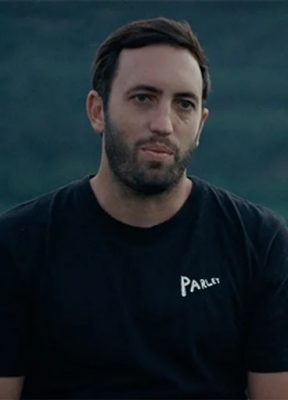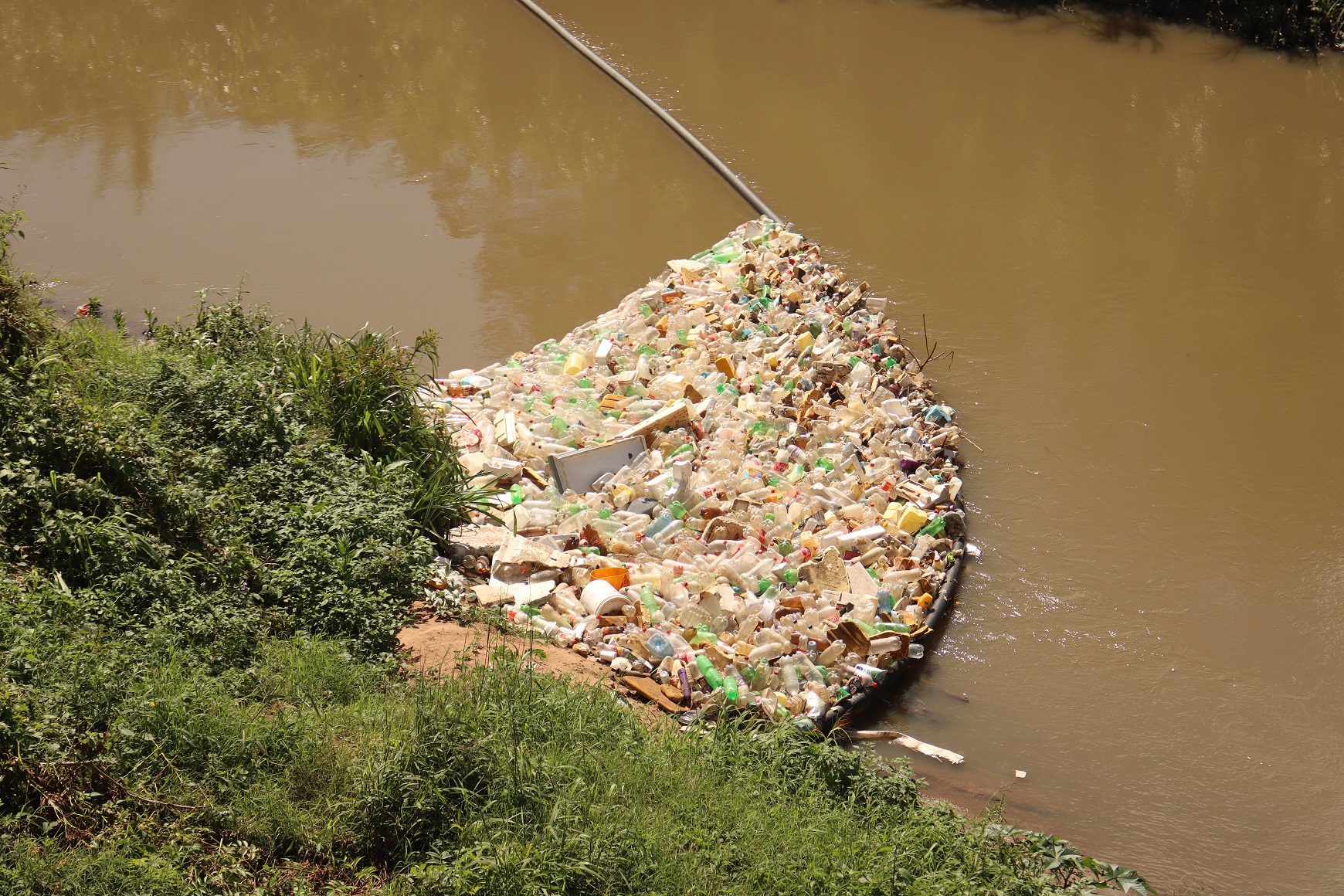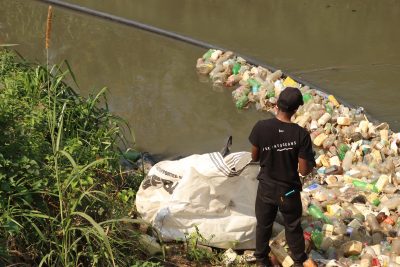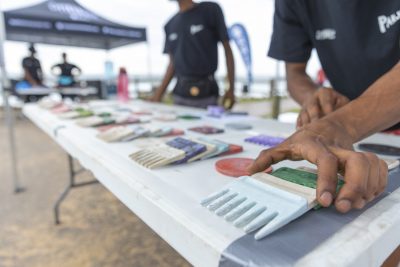It all starts on land. Then it goes to our rivers. And finally, it ends up in our beautiful ocean. In honour of World Ocean Day this month, we caught up with the founder and CEO of well-known non-profit company, The Litterboom Project, Cameron Service.
What started out as an idea to stop litter from getting into the sea via our rivers, has evolved into a full-scale, wholistic approach towards ocean-bound plastic that includes empowerment, education and innovation.

Founded by Cameron in 2017, The Litterboom Project (TLP) initially focused solely on catching plastic pollution upstream in rivers before it could end up in the sea.
Now, six years later, TLP still focuses on protecting the environment, but their aim is to do so in a sustainable way that also empowers the communities living near these rivers. They do this by implementing systems and infrastructure that allows community members to continue the work and reap rewards from it, long after TLP has stepped away from a project.
Always having been passionate about the environment, it was Durban-born Cameron’s love for open spaces – and mountain biking – that led to the start of TLP.
After completing his sport science studies, Cameron spent a couple of years living and working in the Drakensberg before taking up the role of general manager at Holla Trails, just outside Ballito.
Three years later, he began working on his own as a trail-building consultant in various areas around KZN. “I travelled to all these beautiful, green spaces, such as in the Midlands and Zululand, and that was when I realised the enormity of the plastic problem in our rivers,” he says.
After speaking with a fellow Durban Undersea Club (DUC) member and conservationist, Bart Fokkens, who manages the Duzi uMgeni Conservation Trust, the idea to create ‘catchments’ in rivers and stop plastic from flowing downstream was born.
“The concept for litterbooms initially came from seeing the amount of plastic that was ‘caught’ by floating bridges at trail events,” says Cameron. “That’s what sparked the idea and really started the conversation.”
The first litterboom was placed at a tributary near an informal settlement in Umhlanga and Cameron hired locals from the community to clear the plastic. They trialled the project for a year. “It was a hugely successful pilot project. We collected more than 15 tons of plastic. We knew we had to find a way to grow and expand on the concept.”
After securing a key partnership with Parley – a US brand who run cleanup operations in over 20 countries and focus on supporting incredible initiatives – and then getting media exposure after the floods in 2019, TLP started to grow.
From their humble beginnings, with just two staff members and one tributary, TLP now services 10 rivers in South Africa (eight in KZN and two in the Western Cape) and employs 75 staff.
 Their focus expanded about two years ago from only being the last line of defense preventing plastic from reaching the ocean, to becoming more involved with prevention and mitigation. “We wanted to do more to stop the litter from getting into rivers in the first place, which meant working with the communities on land and finding ways to create infrastructure that would make it easier (and beneficial) for them to collect plastic.
Their focus expanded about two years ago from only being the last line of defense preventing plastic from reaching the ocean, to becoming more involved with prevention and mitigation. “We wanted to do more to stop the litter from getting into rivers in the first place, which meant working with the communities on land and finding ways to create infrastructure that would make it easier (and beneficial) for them to collect plastic.
Rather than going the ‘typical’ recycling route, TLP created a ‘source to sea’ eco-system model. “While intercepting plastic is crucial, we believe there should be investment into land-based solutions, too. Our ‘source to sea’ model includes improved waste management systems, education (working with teachers and community leaders) and innovation.
“It involves coordination between municipalities, private sector and plastic producers (to reduce the volumes of single-use plastic), as well as identifying sustainable financial models.”
The innovation side of the project is one Cameron is very excited about. It involves coming up with unique ways to create products from the waste collected. “Our Wastepreneur programme allows us to train entrepreneurs who can focus on using plastic pollution from rivers and oceans to create products, and ultimately have a real chance to run their own businesses and become financially independent.”
As one of the few non-profits that truly gets on the ground and gets things done, TLP is on the lookout for corporates to partner with them on any one of their touch points.
“There are so many ways to become involved, it just depends on what resonates with you. Education? Innovation and entrepreneur development? A lot of investment is needed to test our solutions, so we can figure out what works best. We are determined to continue to innovate and find new solutions until we find what works best to meaningfully tackle the problem of plastic pollution, especially in our developing communities. Hopefully we can create a viable ‘blueprint’ that can possibly be replicated in other countries with similar issues as us, too.”
Details: www.thelitterboomproject.com, [email protected]




